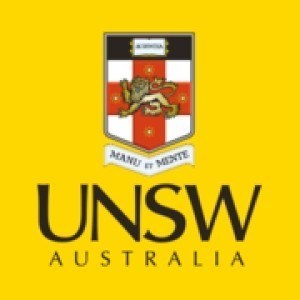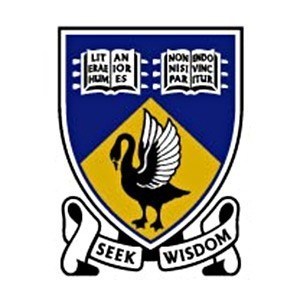Photos of university / #unsw
The Master of Arts in Translation at the University of New South Wales offers a comprehensive and rigorous program designed to equip students with advanced translation skills and a deep understanding of linguistic, cultural, and technical aspects of translation practice. This program is tailored for individuals aiming to pursue professional careers in translation, interpreting, and related fields, or for those seeking to enhance their language proficiency and intercultural communication capabilities. Throughout the course, students engage with a wide range of practical and theoretical modules that cover translation techniques, terminology management, translation technology, and specialized areas such as legal, medical, and technical translation.
The program emphasizes the development of both written and spoken translation skills, fostering the ability to accurately convey meaning across cultures and languages. Students have the opportunity to work on real-world translation projects, develop a nuanced understanding of cultural nuances, and master the use of industry-standard translation tools and software. In addition to core translation skills, the program offers elective courses that explore topics such as intercultural communication, ethics in translation, and professional practice.
The faculty comprises experienced professionals and academics who bring a wealth of expertise and industry insight, providing students with valuable mentorship and networking opportunities. The program is suitable for individuals proficient in at least two languages and interested in applying their language skills in a professional context. Graduates of the Master of Arts in Translation at UNSW are well-prepared for employment in translation agencies, government departments, international organizations, and multinational corporations, or to undertake further research in translation studies. The program is committed to fostering a global outlook and intercultural awareness, ensuring graduates are competitive in the increasingly interconnected world.
The program consists of theoretical and practical courses that complement each other. Theoretical courses cover the theories that can be directly applied to inform and improve practice. The results of the latest research form an integral part of the content of the program's courses. The practical courses apply the learning from the theoretical courses to the development of bilingual translation skills. In addition to the knowledge and skills of translation as a discipline and as a profession, students will also learn related academic and practical skills such as critical analysis, independent research and preparation, project management and team work - which are all related to the work of translators. Students will also learn about the different settings in which translators work, such as law, health, business, diplomacy and media. Teaching methods match the objectives of the program by combining lectures with practical tutorials and a variety of exercises where students actively participate. Students will be assessed through different tasks that target the varied skills and knowledge the courses aim to develop; these include authentic translation projects, critical self analysis of students' own performance, oral presentation, portfolio development, personal language enhancement projects, critical analysis of texts and academic essays.
The program has a strong linguistic component which underpins the theoretical basis of the process and practice of translation. It offers a wide variety of language combinations not available at other institutions. The program combines theoretical lectures delivered in English with language-specific practical tutorials where the theories learned in the lectures are applied to the practice. It also provides students with a comprehensive practicum component.
MTran 1.5 year stream (B)
- Core Courses (48 UOC)
- Prescribed Elective Courses (24 UOC)
MTran 1 year stream (A)
- Core Courses (42 UOC)
- Prescribed Elective Courses (6 UOC)
ARTS5503 Academic Writing for the Humanities (6 UOC)
ARTS5505 Personalised English Language Enhancement (6 UOC)
These courses, ARTS5503 and ARTS5505, can be taken as additional courses but will not count towards your program.
For the 1.5 year stream (B)
- Bachelor degree (or equivalent qualification) in a relevant discipline with a record of academic achievement equivalent to a UNSW credit average of 65% and an advanced level of bilingual proficiency
- Bachelor degree (or equivalent qualification) in any discipline with a record of academic achievement equivalent to a UNSW credit average of 65% plus one year relevant professional experience and an advanced level of bilingual proficiency
- Honours degree or Graduate Diploma* (or equivalent qualification) in any discipline with a record of academic achievement equivalent to a UNSW credit average of 65% and an advanced level of bilingual proficiency
For the 1 year stream (A)
- Honours degree or Graduate Diploma* (or equivalent qualification) in a relevant discipline with a record of academic achievement equivalent to a UNSW credit average of 65% and an advanced level of bilingual proficiency
- Bachelor degree (or equivalent qualification) in a relevant discipline with a record of academic achievement equivalent to a UNSW credit average of 65% plus one year relevant professional experience and an advanced level of bilingual proficiency
Relevant disciplines include:
- Interpreting and Translation
- Arts, Humanities, Social Sciences
- Media, Communications, Journalism, Public Relations, Advertising, Marketing
- Business, Economics, Commerce
- Law
- Linguistics
- Languages
- TESOL
- Cognitive Science
Also
- IELTS Academic version only 6.5 overall (min. 6.0 in each subtest)
- TOEFL Internet-based Test (iBT) 90 overall (min.23 in writing, 22 in reading, listening and speaking)
- TOEFL Paper-based Test (PBT) 577 overall (min. 5.0 in TWE)
Financing studies for the Bachelor of Arts in Translation at the University of New South Wales are designed to provide students with a comprehensive understanding of various funding options and financial management strategies. The program emphasizes the importance of financial planning and resource allocation to support students throughout their academic journey. Students are encouraged to explore a range of financial assistance opportunities, including scholarships, grants, loans, and bursaries available through the university and external organizations. UNSW offers several scholarship programs specifically aimed at supporting students in language and translation studies, which are often merit-based and sometimes need-based, reducing the financial burden on students who demonstrate academic excellence or financial need.
In addition to scholarships, students may have access to government-funded student loan programs, subject to eligibility criteria, which can help cover tuition fees and living expenses. The university also advises students to carefully consider budgeting for personal expenses, study materials, and additional costs related to internships or study abroad opportunities associated with the program. The cost of studying at UNSW varies depending on the student’s residency status, with international students typically paying higher tuition fees compared to domestic students.
UNSW provides financial counseling services to assist students in managing their finances effectively and planning for their future careers. These services include workshops, one-on-one consultations, and online resources designed to equip students with skills in budgeting, financial literacy, and planning for post-graduation employment. Furthermore, many students seek part-time employment during their studies, with UNSW's career services helping facilitate connections to suitable part-time roles within the university or in the surrounding Sydney area. For students undertaking internships or work-integrated learning modules, there may be stipends or remuneration opportunities that contribute to their overall financial stability during their studies. Overall, UNSW is committed to supporting students financially to ensure they can focus on their academic pursuits and achieve their goals in translation and language studies.
The Master of Translation program at the University of New South Wales is designed to develop advanced translation skills and prepare students for professional careers in language services, international organizations, and related fields. This program offers a comprehensive curriculum that covers both theoretical and practical aspects of translation, ensuring graduates are equipped with the necessary competencies to meet industry standards. Students have the opportunity to specialize in various language pairs, emphasizing both source and target language proficiency, cultural understanding, and terminological precision. The program typically includes coursework in translation techniques, translation technology, linguistics, and intercultural communication, alongside practical translation assignments and projects that simulate real-world scenarios. Students may also engage in internships or industry placements to gain hands-on experience and build professional networks. The faculty comprises experienced academics and industry professionals who provide mentorship and guidance throughout the program. Graduates of the Master of Translation at UNSW often pursue careers in translation agencies, publishing, government agencies, and international organizations, among other sectors. The program is designed to foster both individual language mastery and broader communication skills, increasingly important in a globalized world. Students are encouraged to participate in language workshops, seminars, and conferences to stay updated on current trends and developments in the translation industry. The UNSW offers a supportive learning environment with access to modern facilities, software tools, and extensive resources to facilitate effective translation practice. Overall, the Master of Translation at UNSW aims to produce highly capable, ethical, and culturally sensitive translators ready to address the linguistic challenges of today's interconnected world.





